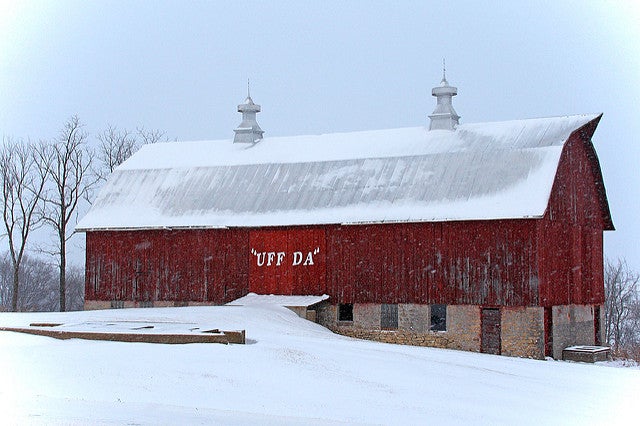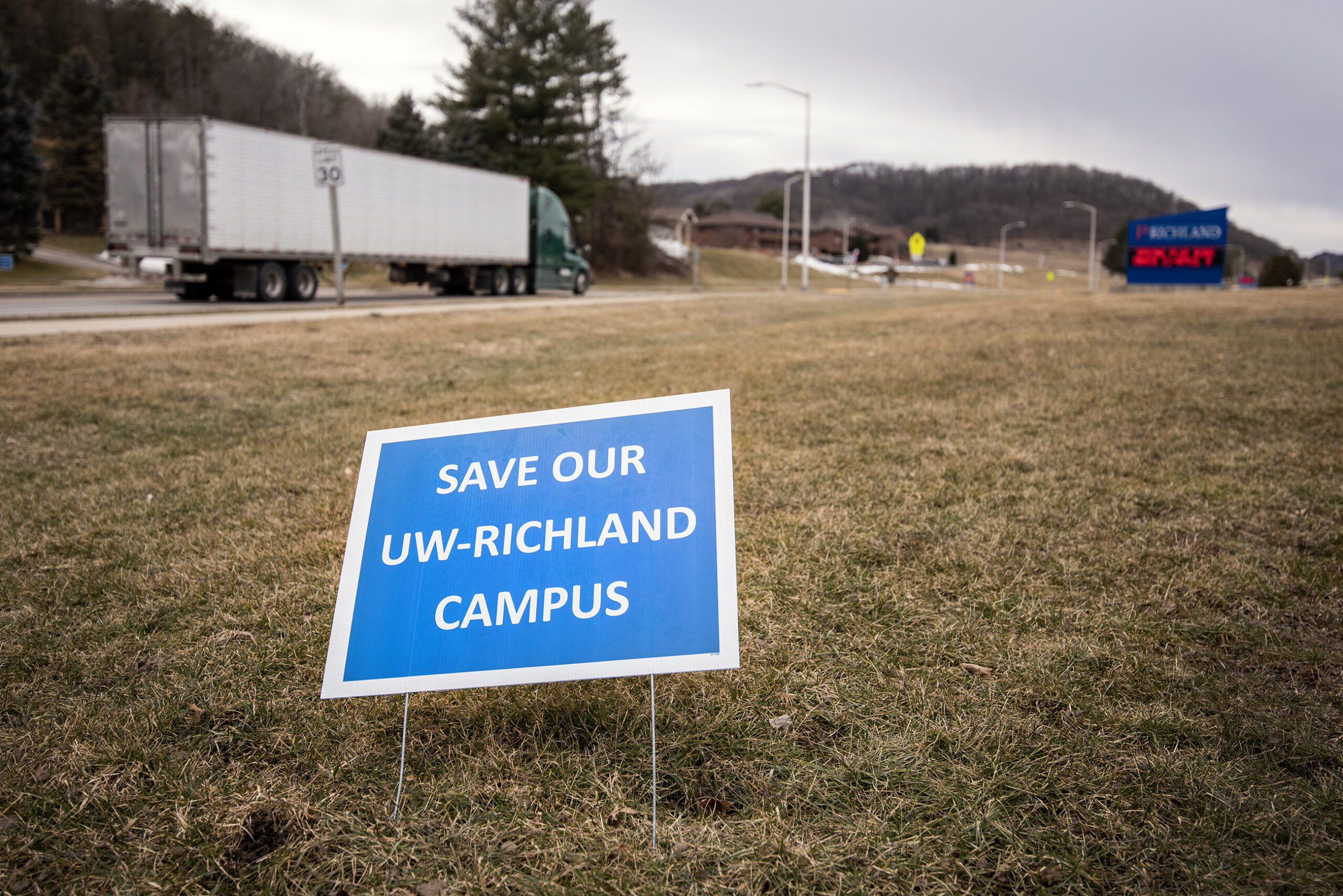University of Wisconsin-Extension Chancellor Cathy Sandeen has announced a series of major changes to cooperative extension, with the change prompting some county officials and community members to worry about how a major consolidation will affect access to university resources.
Paul Wehr has been a dairy farmer in La Crosse County for over 30 years. He said he’s always contacted Cooperative Extension for new information and research.
“If you have trouble with any type of feeding, housing or health issues with cattle,” Wehr said. “Or new technologies that come along.”
Stay informed on the latest news
Sign up for WPR’s email newsletter.
Many people across the state are worried that soon this kind of information may be harder to get as a result of the cuts.
After the University of Wisconsin System received a major cut in state funding at the start of the current budget, Cooperative Extension was left with a loss of $3.6 million in their operating budget. Sandeen said administrators now have to implement program changes in a way that will be the least disruptive. She said the organization needs to take a more collaborative approach to compensate for the budget cuts.
“Instead of having all four program areas in every single county, we need to do more sharing,” she said. “We need to do more sharing between our statewide specialists and our county specialists.”
Sandeen announced her plan for restructuring Cooperative Extension this week. While UW-Extension offices in every county will remain open, now four to five counties will be clumped into an area, served by shared educators and administration.
Trempealeau County Board Supervisor George Brandt said many counties already collaborate with their neighbors to share extension educators.
“The guy from Buffalo County helps out with large animal stuff in this county, our county educator helps out with crop information in Buffalo County, Jackson County, wherever,” Brandt said.
But La Crosse County Administrator Steve O’Malley said he questions whether a statewide restructuring of cooperative extension is even necessary.
“Drawing lines on a map by somebody that’s not directly related to the constituencies that are served misunderstands what the needs are,” he said. “If this is necessary, it’s not based on finances, it’s based on somebody’s idea that we have to restructure all of extension.”
O’Malley said he thinks county governments and local cost-cutting could easily help absorb the cut to Extension’s county services.
In Trempealeau County, Brandt said he’s not concerned about sharing agents as long as residents of his county still have access to extension and other university resources.
“Are the boundaries of the university the boundaries of the state of Wisconsin?” he asked.
Brandt is talking about the Wisconsin Idea, the UW System’s commitment to making university resources available to every resident of the state.
Brandt said many people are worried that reducing extension’s presence in rural counties like Trempealeau could ultimately mean less access to university knowledge and research.
“Ten years ago that would have been a no brainer, nobody would have argued with that. But there are people who are arguing with the idea that people in Wisconsin, just because they live in Wisconsin, have a right or deserve to share in the resources of the university,” he said.
Brandt said he’s worried recent cuts in state funding for the whole UW System mean public knowledge is not a priority for lawmakers.
But dairy farmer Paul Wehr doesn’t see Cooperative Extension’s plans for consolidation as a threat to his access to the university, as long as state specialists are still available to answer his questions.
“It depends on what you want to get out of the Extension, if you want it to actually educate and help the farmers, it’s a lot smaller group than it used to be and a lot of times the farmers are going directly to the university to get help from professors there,” Wehr said.
UW-Extension administrators said structural changes will begin to take place in July. An estimated 80 positions will be eliminated by the end of 2016.
Wisconsin Public Radio, © Copyright 2025, Board of Regents of the University of Wisconsin System and Wisconsin Educational Communications Board.





